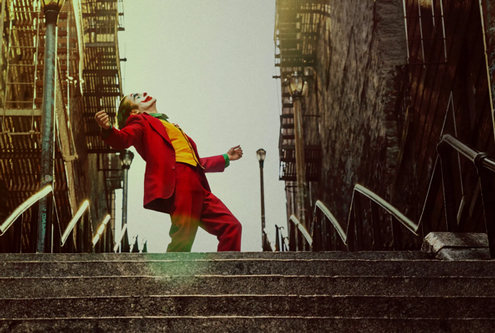Copyright © 2023 Edusites. All rights reserved. Permission granted to reproduce for educational use within the subscribing school only. Copying or lending of any part of this document in any form or by any means to external bodies and / or individuals is prohibited.
In studying a film such as The Joker, we are considering a film that’s regarded as a contemporary ‘classic’. There are a wealth of ideas to engage with in the discourse about the film. Discourse refers to the conversations and debates around the film, or any particular subject, and the perspectives of such conversations can engage us in a range of valuable ideas.
Feature film adaptations of American superhero comic book characters and stories (which themselves tend to be better defined as crime stories and as thrillers) have been hugely commercially popular since the release of the film Batman (1989). Since 2008, there has been a sustained period of massively popular comic book film adaptations. Of this success, the film scholar Liam Burke in his book The Comic Book Film Adaptation: Exploring Modern Hollywood’s Leading Genre, notes that comic book adaptations are amongst the most significant adaptations of source material in recent years. Part of this is the degree to which adaptations of comic books arguably offer the filmmaker more scope for invention than an adaptation of a novel might do. Burke explains that continuity rather than fidelity is the key issue for readers of comics who see their favourite character brought to the screen.
The Joker offers up a rich experience for us as viewers of film and as students with an interest…
